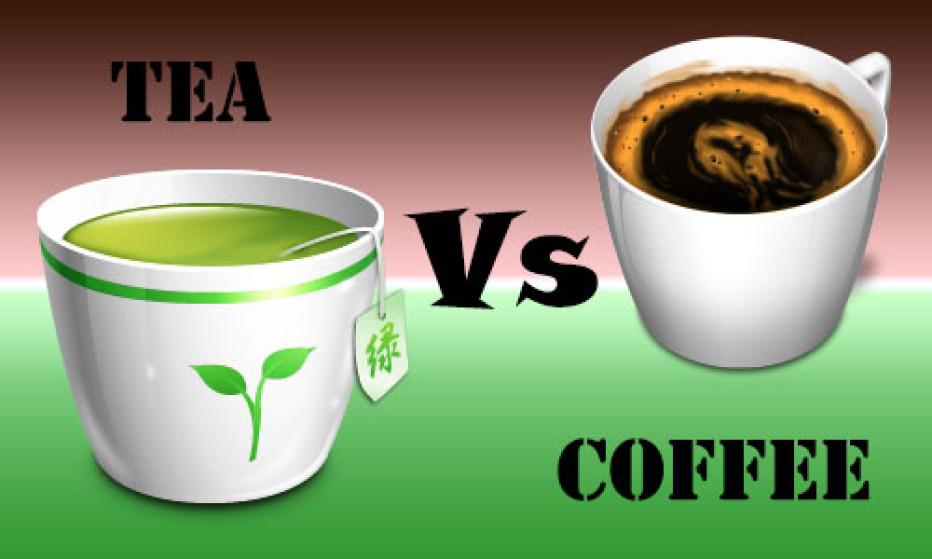
However, we�ve noticed that there is quite the divide when it comes to everyone�s preferred caffeine sources—some of us would do anything (well, almost anything) for coffee while others will fight to the death for their tea. Caffeine levels in both before and after brewing vary significantly.

How much caffeine is in a cup of tea vs coffee?
Caffeine in coffee vs tea. One cup of regular coffee has 95 milligrams of caffeine. Up to 9.6% cash back both coffee and several types of tea include caffeine, but coffee contains a much higher concentration. Comparing coffee and tea to other caffeine sources.
The long answer is, there’s a lot more to the story than this. Tea leaves are about 3.5% caffeine. Is one healthier than the other?
4 rows check the charts for an idea of the caffeine content in popular beverages. The brewing time for coffee is also longer than tea. The amount of caffeine in tea differs based on the cultivar, which part of the tea plant is used, and the.
During the brewing process, coffee beans use hot water that extracts more caffeine from the beans. Decaffeinated tea has only 3 to 15 mg per 8 oz cup. The steeping time of tea can affect.
Tea has slightly less caffeine in each cup. While coffee is generally consumed in the west, tea is the main source of caffeine in the east. However, the coffee brewing process uses hotter water, which extracts more of the caffeine from the beans.
Based purely on its composition, coffee should win hands down: Most coffee drinkers favor a hot cup over a cold brew. How much caffeine in tea vs coffee.
Brewed coffee has more caffeine than steeped tea. Despite the widely held belief that coffee must have more caffeine than tea, tea leaves actually have more caffeine than coffee beans. Most of us know that a cup of brewed coffee contains more caffeine than a cup of brewed tea.
Caffeine levels in both before and after brewing vary significantly. Caffeine is the most studied and consumed stimulant in the world ( 2, 3 ). A cup of tea has about half the dose (40 milligrams) of the stimulant caffeine that you would find in a standard cup of brewed filter.
Both kinds are much more caffeinated than a steeped teabag. A dark roasted bean will not carry the same amount of caffeine as a tea leaf. For an avid coffee drinker who enjoys several cups per day, they can easily reach their recommended caffeine allowance of 400 milligrams per day by simply enjoying their favorite beverage.
The amount of caffeine in a cup of tea vs a cup of coffee is. However, depending on the water temperature used to prepare the drinks the caffeine content in the actual beverage can differ. On the other hand, coffee beans are about 1.1 to 2.2% caffeine.
A variety of factors can affect the coffee content such as the type of beans, the roasting process, and coffee’s flavor and caffeine content, just like they do for tea. Green tea, on the other hand, has less caffeine than coffee or soda. According to how the tea has.
How much caffeine is in a cup of tea vs coffee? For example, a cup of coffee has around double as much caffeine as black tea, at 95mg per cup, an amount similar to. Antioxidants protect your body against free radical damage, which may help prevent the development.
This makes tea a great ( and healthy ) afternoon drink when you’re looking for a small energy boost to get you through the rest of the day. Steeping tea removes the caffeine, given the water’s heat gradually burns it away. However, unlike coffee, tea has an incredibly pleasant taste, aroma, flavor as well as numerous health properties.
The change comes when comparing brewed coffee to brewed tea. 11 rows the exciting and surprising fact is, tea leaves are richer in caffeine content if compared to. The quick answer is a cup of tea has 47mg of caffeine and a cup of coffee has 96mg (fresh) or 62mg (instant).
Black tea is only around 65mg of caffeine, while oolong, green, and white tea are all under 50mg per serving. The hotter the water, generally, the more caffeine is extracted from the leaves or the beans. However, we�ve noticed that there is quite the divide when it comes to everyone�s preferred caffeine sources—some of us would do anything (well, almost anything) for coffee while others will fight to the death for their tea.
For this reason, those apt to drink large quantities are better off sticking to tea so that they don�t exceed the daily recommendation of 300 milligrams. It may surprise you to learn that tea leaves have a higher caffeine content than coffee beans before brewing. In general, though, here�s what we know:
However, raw tea leaves can contain more caffeine than coffee beans. Tea contains less caffeine than coffee. So caffeine is used as the name of the natural stimulant for both tea and coffee until today.